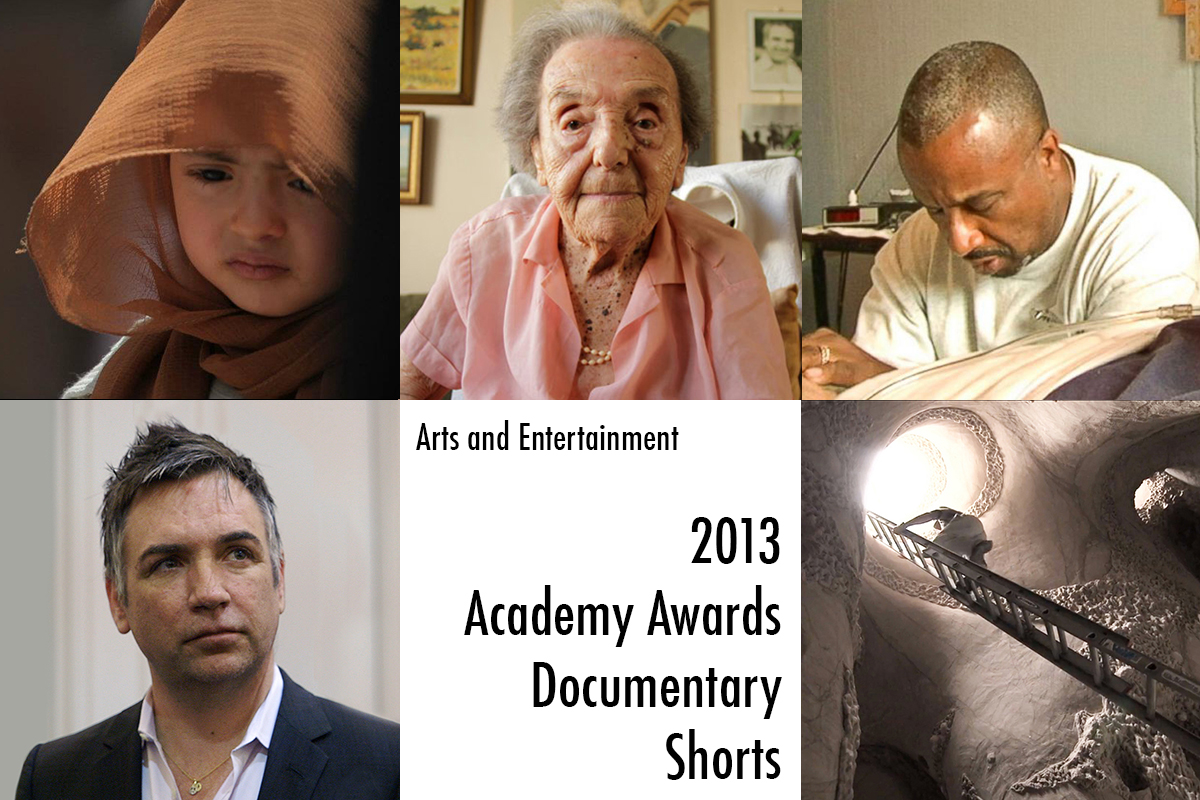Academy Awards nominations: Documentary short subject

(Shorts HD)
Every year, the works chosen for the three Academy Awards categories for short films are among the most overlooked of the year’s Oscar selections. Aside from those coupled with Pixar films and the rare popular YouTube short, the majority of pieces go unseen and unheard of by the general public. Yet, for each of the shorts chosen as selections for the highest honor available from the field of films less than 40 minutes in length, the recognition alone puts their extremely varied story lines and styles into history.
This year’s nominees don’t come up short, with a wide array of talent on display from countries around the world. Having previously reviewed the five nominees for both Best Live Action Short Film and Best Animated Short Film, Daily Bruin A&E;’s Tony Huang and Sebastian Torrelio look at the shorts nominated for Best Documentary Short Subject, analyzing each piece’s shot at a big victory come the Academy Awards on March 2. The five pieces will be available for packaged viewing in theaters on Friday.
“CaveDigger”
Directed by Jeffrey Karoff

“CaveDigger” is a pleasant, modest and surprisingly inspirational look into an art that most don’t even know exists: cave digging. Ra Paulette, the documentary’s subject and guide, has been practicing the medium for decades, often – as is usual for true artists – at the expense of his personal life.
The subject matter is enough to carry the film through, but there is a valuable sense of restraint in the way director Jeffrey Karoff pieces the different strands of Paulette’s life together. There are no engineered conflicts, no playful interjections, no adventures into stylistic experimentation, just presentation and explanation, melancholy counterpointed by uplift. And even more fortuitous is when the camera ventures to explore these caverns of expression, with Paulette talking about them in a way that would apply equally to any number of arts; there’s a hope to his art that affects quietly and assuredly.
“Facing Fear”
Directed by Jason Cohen

Unlike a few of the other nominees, “Facing Fear” does not pack a unique touch – it isn’t significantly emotional, as it may be aiming for, and it isn’t too artistically driven, as is so overbearingly important in the Best Documentary Feature category this year. But “Facing Fear” does the expected well, utilizing common documentary tropes of the 1980s and 1990s in a fashionable, likeable manner.
“The Lady in Number 6: Music Saved My Life”
Directed by Malcolm Clarke and Nicholas Reed

“The Lady in Number 6: Music Saved My Life” doesn’t seem to trust the audience, using rather artificial strategies to direct attention to a subject who would draw interest on her own: the world’s oldest Holocaust survivor, the 109-year-old professional pianist Alice Herz Sommer. It’s a shame that so many interesting people are served with shoddy documentaries.
This one at least fails somewhat uniquely – rather than lapsing into hagiography or rhetoric, it merely refuses to settle on a message. Instead, it gestures wildly at the power of music and the trials of survival as if the audience will fill in the template. Stylistic leaps attempt to enhance its appeal – the vague compositions are blurred by soft focus and ruined by color grading, plus a simply indifferent approach to form. It’s easy to come away liking “The Lady in Number 6,” but it’s hard to find much to be surprised or impressed by.
“Karama Has No Walls”
Directed by Sara Ishaq

“Karama Has No Walls” is easily the most powerful of the five nominees at hand, and is likely the most powerful documentary short film in the last several years. Following the work of two cameramen who take more risks than reasonably possible, the film documents the events of March 18, 2011, known in Yemen as the Friday of Dignity, a turning point in the Yemeni revolution. When government-affiliated snipers shot down 53 protesters, hundreds of thousands of citizens gathered in the town square to support their fallen allies.
Imposing blood, violence and fatefully captured terrorization into a story of democratic vigilance, “Karama Has No Walls” is shocking and disconnected, without much context provided, but effective. Not meant for the faint of heart, the film vividly looks at humanity in a horrific style. Nevertheless it remains passionately uplifting, capturing the essence of hope that many who lost their lives on camera had. In similar fashion to Best Documentary Feature nominee “The Square,” “Karama Has No Walls” is interesting and striking in the most tragic way possible.
“Prison Terminal: The Last Days of Private Jack Hall”
Directed by Edgar Barens

Jack Hall, or rather George W. Hall, was a private during World War II. A decorated soldier, he found himself on the frontlines of some of the most brutal battles in American history and a prisoner of war in Germany. Years later, after his son hung himself, he killed his son’s drug dealer, earning life imprisonment in one of America’s oldest maximum security prisons.
“Prison Terminal: The Last Days of Private Jack Hall” is extraordinary in respect to the access that director Edgar Barens and his crew had, but also in the heartbreaking story that it plays out on film. Everybody dies, prisoner or not, and it’s within the best of human interest to die with dignity. “Prison Terminal” relates that idea in a difficult way – men and women who receive life imprisonment sentences aren’t supposed to receive sympathy. But the poignant interpretation of Hall’s life, and the care of the inmate volunteers around him, make that sympathy wholesomely justifiable.


